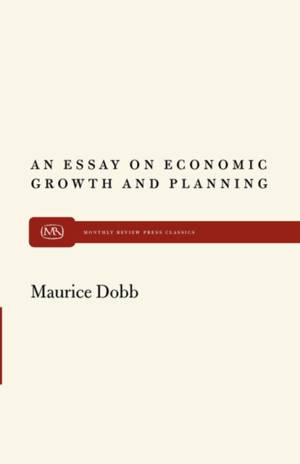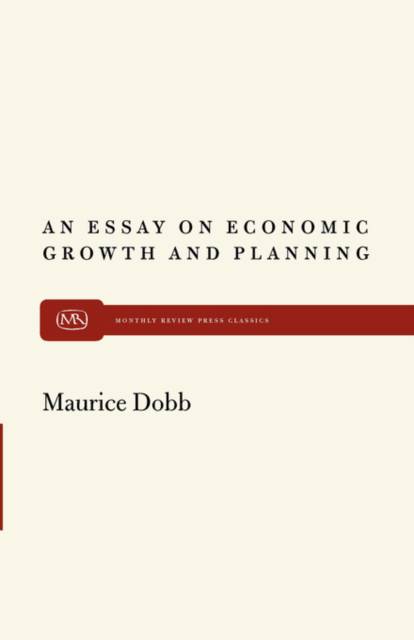
- Afhalen na 1 uur in een winkel met voorraad
- Gratis thuislevering in België vanaf € 30
- Ruim aanbod met 7 miljoen producten
- Afhalen na 1 uur in een winkel met voorraad
- Gratis thuislevering in België vanaf € 30
- Ruim aanbod met 7 miljoen producten
Zoeken
€ 25,45
+ 50 punten
Omschrijving
This important essay dates from the end of the fifties. During this era, the dominant theories of economic growth were based on conditions of private ownership of capital and where investment is primarily under the control of private individuals or firms. Dobbs, however, considers the alternatives. He asks: Do such theories have a more universal application? Can they be applied to planned economies? If they can, in what form may such an application be made? Half a century later, with the global regime of unfettered international capital markets in a state of utter collapse, the time has come for a return to the possibility of rational social and economic planning. This short clear book is again a necessary theoretical starting point for a post-capitalist future.
Specificaties
Betrokkenen
- Auteur(s):
- Uitgeverij:
Inhoud
- Aantal bladzijden:
- 132
- Taal:
- Engels
- Reeks:
Eigenschappen
- Productcode (EAN):
- 9780853451174
- Verschijningsdatum:
- 21/03/2011
- Uitvoering:
- Paperback
- Formaat:
- Trade paperback (VS)
- Afmetingen:
- 140 mm x 216 mm
- Gewicht:
- 176 g

Alleen bij Standaard Boekhandel
+ 50 punten op je klantenkaart van Standaard Boekhandel
Beoordelingen
We publiceren alleen reviews die voldoen aan de voorwaarden voor reviews. Bekijk onze voorwaarden voor reviews.











